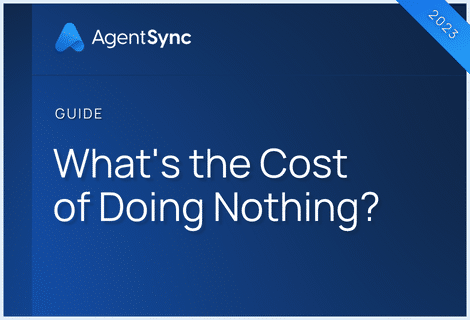

Did you know? Wisconsinites consume nearly 21 million gallons of ice cream every single year. But that isn’t the only thing sweet about the Badger State. Wisconsin is also home to some very delicious insurance producer continuing education (CE) requirements.
If CE requirements don’t get your mouth watering, you should know: Maintaining a resident producer license is key to maintaining all nonresident licenses. Since CE is central to that, it’s something that producers should be extra excited about sinking their teeth into.
We like to think we know our stuff when it comes to Wisconsin CE requirements, but ultimately, you’re the one responsible for making sure you’re up to date on state requirements. When in doubt, it’s always a good idea to go straight to the Wisconsin Office of the Commissioner of Insurance website.
What is the due date for Wisconsin Insurance CE Credits?
Resident producer licenses expire biennially on the last day of the licensee’s birth month and CE is due on the very same day. If you have a hard time remembering your month of birth, the state of Wisconsin will do you a favor by sending you a notification to remind you 60 days before license expiration.
Who’s exempt from Wisconsin Insurance CE?
If you’re a nonresident producer in Wisconsin, then you may not need to comply with these CE requirements. Wisconsin exempts nonresident producers who comply with their resident state’s CE requirements. However, typical of insurance compliance, there’s an exemption to this exemption. Nonresident producers who sell long-term care insurance will still need to comply with some of Wisconsin’s CE expectations. These are outlined below under the long-term care training requirements section.
How many hours of CE are required for Wisconsin insurance producers?
Resident producers in Wisconsin who hold an insurance license in any of the major lines – life, accident and health, property, casualty, or personal lines P&C – or in the limited line of automobile insurance, must complete 24 hours of CE credits every biennial renewal period. Three of the 24 hours must be in ethics courses.
Producers can feel free to complete their CE requirements through credits taught in any of the major lines.
If you’re all about CE and want to take as many CE courses as possible in a single renewal period, bad news: You won’t be able to carry over any of those credits to the next renewal period. However, if you teach a CE course, you can receive the same amount of credit for that course as your students.
To get CE credits, students must take an exam at course completion. These courses are closed book and must be passed with a score of 70 percent or higher. Don’t stress if you struggle with an exam as it can be taken an infinite number of times. That said, course repetition is not allowed.
In light of COVID-19, Wisconsin temporarily waived proctor requirements for end-of-course exams. However, as of Aug. 1, 2021, students are now expected to adhere to the proctor requirements for all end-of-course exams again. The proctor needs to be a disinterested third party or currently licensed agent without any family or financial relationships with the agent. The proctor will be expected to verify the agent’s identity and complete an affidavit verifying that the producer received no outside assistance.
Annuity training requirements
Resident producers wishing to sell annuities products must first complete a one-time, four-hour annuity training course. As of Oct. 1, 2022, producers who have taken the annuity requirements before must complete within six months a four-credit training course or an additional one-hour credit course provided by a Commissioner-approved education provider. The approved annuities course must include the following:
- Identification of the parties to an annuity,
- How fixed, variable, and indexed annuity contract provisions affect customers,
- The application of income taxation of qualified and nonqualified annuities,
- The primary use of annuities as well as appropriate sales practices, replacement, and disclosures.
In Wisconsin, insurers are responsible for ensuring those who sell their annuities products have the proper training to do so. They’ll be expected to track and maintain records on the subject.
Life settlement training requirements
Resident life settlement brokers in Wisconsin are expected to complete an initial eight-hour training. In addition to the initial eight-hour training, brokers must also complete an ongoing four hours of training every 24-month renewal period, two of which must be completed every year.
To receive credit for the life settlement course, it must include:
- Legal structuring of life settlement,
- Legal relationship among parties to a life settlement,
- Required disclosure and privacy,
- Ethical consideration in selling, soliciting, and negotiating life settlement,
- Contract requirement,
- Advertising and remedies.
Long-Term Care Partnership training requirements
Wisconsin has a number of special requirements saved up especially for resident producers interested in selling, soliciting, or negotiating long-term care insurance products. First off, producers must take a one-time initial training of no less than eight hours, two of which must specifically address Wisconsin Medicaid and long-term care.
After completion of the initial training, producers must also complete a four-hour ongoing training every biennial renewal period, of which one hour must be specific to Wisconsin Medicaid and long-term care. This four-hour training can count toward the producer’s total CE requirement of 24 hours of CE credits every renewal period.
To be an approved CE course in the state of Wisconsin, the training must include information on state and federal regulations on long-term care, the types of services and providers available for long-term care, alternatives to private long-term care insurance, impacts of inflation, and insurance suitability standards and guidelines.
While for the most part, nonresident producers are exempt from Wisconsin CE requirements, that is only partially true for long-term care insurance. Nonresident producers who sell long-term care products in Wisconsin will be expected to complete the initial two hours of Wisconsin-specific Medicaid and long-term care product training, plus the one hour of ongoing Wisconsin-specific training. This is true even for nonresident producers who complete the CE requirements for long-term care within their own state.
In Wisconsin, insurers are responsible for ensuring those who sell their long-term care products have the proper training to do so. They’ll be expected to track and maintain records on the subject.
Flood training requirements
FEMA and the National Flood Insurance Program establish a national baseline minimum of three hours of flood-specific training for producers selling flood insurance.
For more information about state-specific licensing requirements, or to find out how AgentSync can make it easier to operate across multiple states, check out our state pages.
Wisconsin Insurance CE FAQs
Do I need to report course completion?
Yes, you must report course completion within 10 days.
What do I need to report course completion?
You’ll need your Wisconsin license number.
Will I need to pay any reporting fees?
Yes, you’ll be expected to pay a $1 reporting fee.

